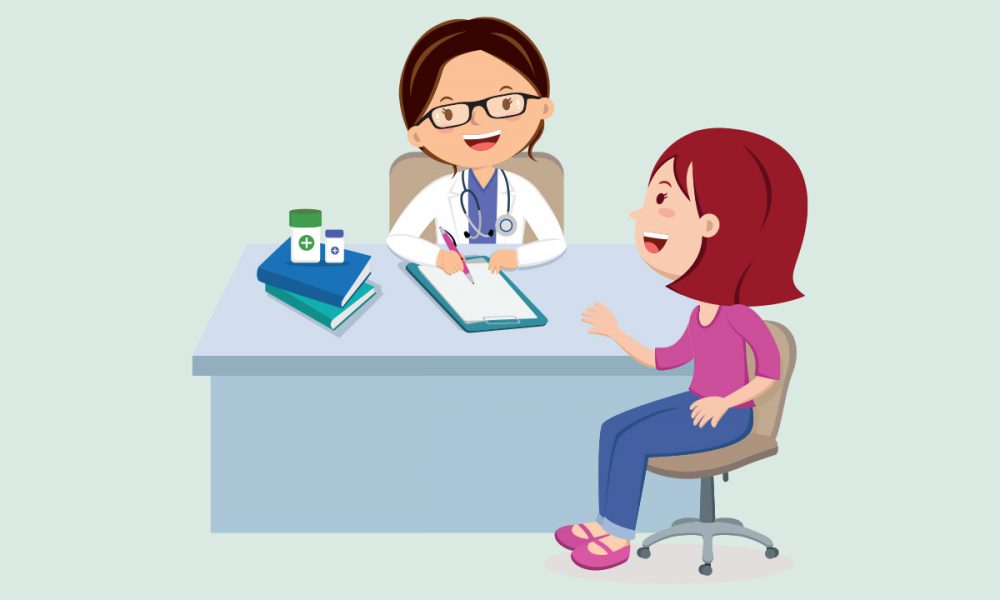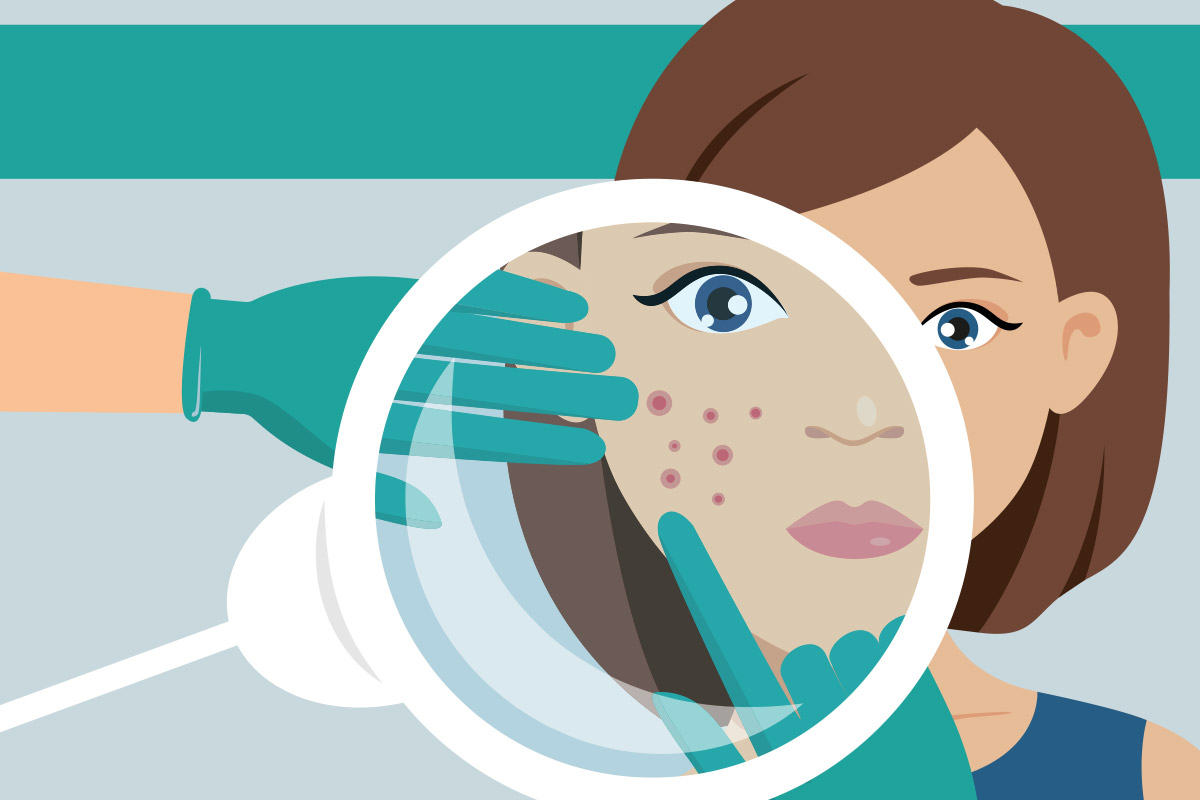Home » Acne Treatments » Acne Medication » Isotretinoin For Acne
Isotretinoin For Acne
Understand how this powerful acne medication works
Isotretinoin capsules (e.g. Oratane or Roaccutane) have long been the most effective treatment for severe acne as they address all the known causes of severe cystic acne.
They are a type of retinoid (derivative of Vitamin A) and work by unblocking pores and preventing further blockages, reducing oil production and soothing the redness and inflammation of acne.
Isotretinoin makes the oil gland less friendly to the bacteria that contribute to acne, and can produce a long-term remission in up to 85% of people with severe cystic acne.
Some people can have long lasting acne clearance from just one course of oral isotretinoin treatment (typically at normal dose five to six months duration or at low dose 10-12 months).
However, a small percentage of people can have a recurrence of their acne, which is usually less severe than their original form and may occur after a long break from having pimples.
Depending on the severity of the recurrence, another course of isotretinoin may help.
Using isotretinoin to treat your acne
Generally, only skin specialists can prescribe oral isotretinoin, so you will need a referral to a dermatologist for careful assessment and monitoring.
Before you start on isotretinoin capsules your doctor may run a few tests such as:
- Blood tests looking at blood fats (cholesterol and triglycerides), liver function, a blood count and some hormone tests.
- Pregnancy tests (for females).
Isotretinoin is available on the Pharmaceutical Benefits Scheme (PBS) for treating severe cystic acne that hasn’t responded to other treatments. It’s available in a variety of doses from 5-40 mg.
Low dose isotretinoin provides a useful starting point for patients who are particularly concerned about the risk of side effects.
Potential side effects of isotretinoin
Although retinoids, such as isotretinoin, are very effective at treating acne, they may cause side effects.
It’s important to have regular check-ups with your prescribing doctor because they can tailor your therapy and give you more information on how to manage or prevent side effects.
If your doctor has recommended Oratane, a patient support pack including a cleanser, lip balm and moisturiser is provided when you receive your prescription.
Dryness
Retinoids work by reducing the size of sebaceous glands and the amount of oil they produce. So, one of the most common side effects is dryness which may appear as scaliness or skin irritation. This can be reduced by cleansing with a gentle soap-free cleanser and using an oil-free non-comedogenic facial moisturiser for sensitive skin (preferably with sunscreen with at least SPF 30).
Isotretinoin will make your skin much drier in the first few weeks of treatment. To help protect your skin, try to keep your showers shorter than five minutes and use lukewarm water rather than hot. Using a moisturiser regularly will help keep the dryness under control.
People taking isotretinoin capsules commonly find their lips are particularly dry and may need to use a lip balm containing sunscreen (SPF30-50+) frequently. Dryness of the throat, nose (nosebleeds may occur) and eyes are also potential side effects which can be helped by eye drops and applying a soft petroleum jelly (Vaseline) just inside the nostrils.
Dryness may be worse when you’re in air conditioning or a low humidity climate. If you wear contact lenses, you may also find it difficult to tolerate the lenses with higher doses of isotretinoin due to dryness. Eye drops (e.g. Thera tears) may be helpful.
Men with severe acne who shave should try both an electric and safety razor to see which is more comfortable. If you use a razor, soften your beard thoroughly with soap and warm water or you may want to shave using a moisturiser rather than a shaving cream or soap. To avoid nicking pimples, shave as lightly as possible. Shave only when necessary and always use a sharp blade.
Patients prone to eczema may need to increase moisturising their skin to prevent any flare-up of their eczema.
The level of dryness is related to the dosage of medication. If your dryness is particularly severe, a reduction of isotretinoin dose would help reduce this side effect. Please discuss this with your dermatologist.
Be aware that as your skin is more sensitive and fragile when taking this medication, minor skin trauma can be slower to heal such as cuts and grazes especially when playing sport.
Flare-ups
When you take isotretinoin capsules, it’s important to be aware that although this is the most effective severe acne treatment, your acne may get worse about three weeks in.
An antibiotic or anti-inflammatory may be prescribed in conjunction to try and prevent this. Don’t give up!
Some patients experience an initial flare-up which is minimised by starting on a lower daily dose. With continued therapy, acne flares generally become less severe, less frequent and shorter in duration, and in most cases the acne improves. If you are concerned about a flare-up in your acne after starting a new acne therapy you can contact your prescribing doctor for advice.
Sun sensitivity
Retinoids make skin more easily irritated by sun, wind and water. Increased sun sensitivity leading to quicker sunburn is common in Australia, particularly in spring and summer.
It’s important to take extra sun protection measures such as wearing sunscreen, a broad-brimmed hat, protective clothing and trying to stay in the shade.
Many people who take isotretinoin can use an oil-free, SPF50+ broad-spectrum water resistant sunscreen without it worsening their acne.
It’s a good idea to check the UV Index via news reports, weather updates or websites before you head outside.
Joint aches
Tiredness, muscular, joint aches and pains are not common side effects, but they can occur.
Generally these side effects are dependent on the number of capsules you’re taking per day. If these side effects become severe and unmanageable, reducing the dose you take each day may help. However, this may also prolong your course of capsules and acne.
Rare side effects
These include hair loss, mood change, severe headaches associated with nausea, vomiting and vision changes may occur. If any of these symptoms occur, stop therapy and contact your doctor or dermatologist.
People with a family history of high cholesterol or triglycerides are at risk of having these blood fats increase while on isotretinoin treatment. A repeat blood test is usually done after a month or so after starting isotretinoin therapy to recheck these tests. It’s a good idea to avoid excessive alcohol while you’re taking oral isotretinoin.
Important precautions for women considering isotretinoin

If you are a woman of child-bearing age (when periods start) wanting to start a course of prescribed isotretinoin for acne treatment, you (and your family) need to understand the risks involved.
Birth defects can be caused if you:
- Take oral isotretinoin (e.g. Roaccutane) while you’re pregnant
- Become pregnant while taking oral isotretinoin
- Become pregnant within one month of stop taking oral isotretinoin
As a result of these risks, you must use strict birth control for:
- At least one month before you start isotretinoin treatment
- During the entire isotretinoin treatment
- For at least one month after you stop taking the isotretinoin treatment
To avoid pregnancy while on the drug and for one full reproductive cycle after treatment, you need to use very effective contraceptive measures. Using two effective forms of birth control (such as the oral contraceptive pill and use of a condom) is recommended because even the oral contraceptive pill occasionally fails.
There are many issues involved in choosing and taking the oral contraceptive pill, such as the importance of taking the pill at the same time each day.
Irrespective of what contraceptive measures you choose, a negative pregnancy test is usually required before starting isotretinoin.
This will be taken just before starting isotretinoin. You then need to wait until the second or third day of your next menstrual period before you start taking isotretinoin. This is an extra check to make sure you are not pregnant.
Anyone concerned that they have become pregnant while on isotretinoin should contact their doctor and dermatologist immediately.
You can call the Medicines Line on 1300 633 424 and the following state-based services are also available:
| State | Organisation | Phone |
|---|---|---|
| NSW | MotherSafe Royal Hospital for Women, Randwick | 02 9382 6539 (metro residents) 1800 647 848 (non-metro residents) |
| ACT | Drug Information, Canberra Hospital | 02 8382 2136 |
| SA | Women and Children's Hospital, Adelaide | 08 8161 7222 |
| VIC | Medicines Information Service, Royal Women's Hospital Medicines Information Centre, Monash Medical Centre | 03 8345 3190 03 9594 2361 |
| WA | Women's and Children's Health Services, Perth | 08 9340 2723 |
An emergency oral contraceptive pill is available from hospital emergency departments and over-the-counter at pharmacies. It must be taken within 72 hours after unprotected sex to be effective. It’s best to see a doctor to discuss the options that are available.
A dermatologist will provide information on pregnancy prevention strategies. For more information on contraceptive options, contact a local doctor or family planning association.
Isotretinoin does not affect your fertility in the long-term.
If you are thinking about becoming pregnant after using oral isotretinoin, it is safe to conceive one month after all capsules are finished.
Isotretinoin and mood disorders
It’s completely understandable that people with acne may feel unhappy and consequently may develop mood disorders, such as depression, because of their acne.
So, it’s no surprise to find many studies that show acne can cause depression. As a result, it is very important that the effects of treatment on depression also be studied.
There are several comprehensive studies by scientific experts and worldwide regulatory authorities, such as the Food and Drug Administration (FDA) in the United States, that have not found a definite link between isotretinoin and depression or suicide.
In fact, studies suggest that the risk of depression is reduced in those with severe acne being treated with isotretinoin (e.g. Oratane, Roaccutane). This is because isotretinoin improves acne and can therefore improve an individual’s overall feeling of well-being.
If you have a history of depression and/or a family member with depression and isotretinoin is being considered, make sure you discuss this with your doctor so they can monitor your mood more closely.
There have been reports of depression and suicide in people taking isotretinoin and there are many possible reasons for this.
Both severe acne and newly diagnosed depression particularly affect teenagers and young adults. Although studies suggest isotretinoin does not cause depression and there is no link, it is very important to monitor everyone on therapy for severe acne for depression and suicide risk, including those being treated with isotretinoin.
Therapy will usually be stopped due to the possibility of an idiosyncratic reaction or intolerance to isotretinoin. Idiosyncratic reactions to medications are usually rare and the reasons for them are not understood or predicted by pre-treatment investigation.

Seeing a doctor for acne
When acne makes it difficult for you to enjoy your life, it’s definitely time to see a doctor.
